All Stories
-
 Tech
TechAnimated movies made by computer
A 17-minute animated movie made with a computer in 1964 took 2,000 hours of film processing and cost $600 per minute. The 2013 animated film Frozen cost about $1.5 million per minute to make.
-
 Genetics
GeneticsNew tools reveal new truths about fungi, flies, antibiotics
In the newsroom, any story about a new scientific method faces an uphill battle. In this issue are a number of stories that feature how science is done.
By Eva Emerson -
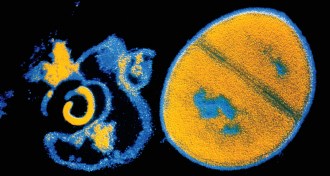 Health & Medicine
Health & MedicineUnsolved drugs
Long thought to launch precision attacks against bacteria, antibiotics may also cause lethal collateral damage, according to a controversial theory. Exploring how these compounds kill may reveal new ways to fight antibiotic resistance.
By Beth Mole -
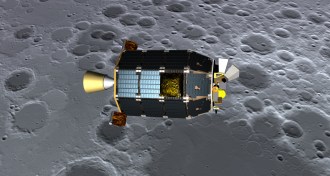 Planetary Science
Planetary ScienceRIP LADEE: 9/6/2013 – 4/18/2014
NASA’s Lunar Atmosphere and Dust Environment Explorer (LADEE) mission ended April 18.
-
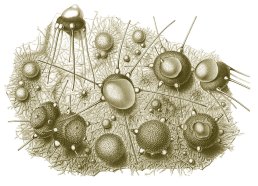 Life
LifeThe name of the fungus
A rebellion has broken out against the traditional way of naming species in the peculiar, shape-shifting world of fungi.
By Susan Milius -
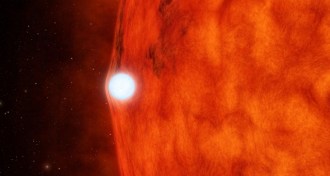 Astronomy
AstronomyWhite dwarf boosts light of stellar companion
A gravitational lens in a binary star lets astronomers weigh the core of a dead star.
-
 Health & Medicine
Health & MedicineGene variant, processed meat linked to boost in cancer risk
In people with a specific variation of a gene on chromosome 10, eating processed meat is associated with an increased risk of developing colon cancer.
-
 Neuroscience
NeurosciencePoor slumber is bad for young flies’ brains
A child's sleep deprivation could alter brain development and adult behavior, a study of fruit flies suggests.
-
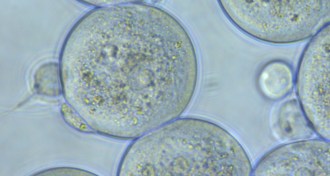 Life
LifeProtein that gets sperm into egg identified
The protein Folr4 on a reproductive egg plays this crucial role in the fusion of the sperm and egg, research shows.
-
 Tech
TechTo do: Exhibits to explore this May in D.C. and New York
Events include a celebration of science and original watercolor paintings from John James Audubon.
-
 Neuroscience
NeuroscienceEven with rest, brain changes linked to football linger
The offseason may not allow enough time for football players' brains to heal from hard hits.
-
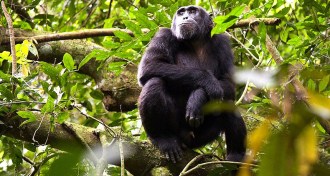 Animals
AnimalsHow a chimp goes mattress hunting
Chimpanzees prefer firm beds made of ironwood, a new study finds.